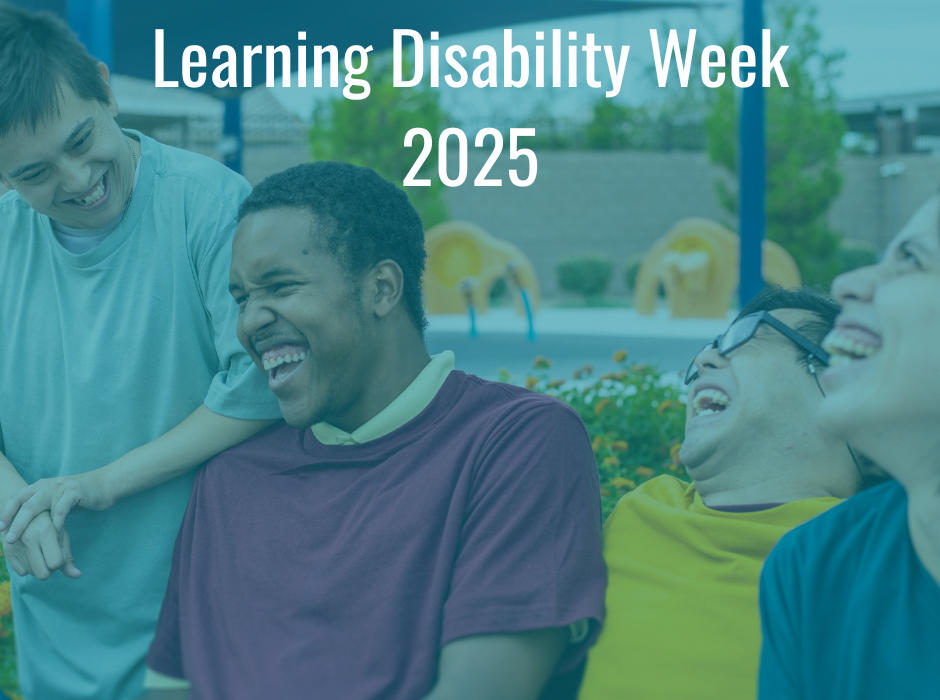This Learning Disability Week we’re asked: ‘Do you see me?’
For Paul, for a long time, the answer was no, because he was stuck in secure accommodation, away from his home community. Now, Paul is home, but for too many people still trapped in inappropriate out of area placements, we can’t see them because they’re not here.
| Paul’s story Paul had a difficult home life growing up, and was removed from home by social work at 16. He also has a learning disability and a chromosomal disorder which made finding the right place for him very difficult. He initially went in to Assessment and Treatment, and was then discharged into a series of inappropriate and ultimately unsuccessful placements. These included foster homes and residential units, each increasingly secure and increasingly further from home. On his 21st birthday he was taken from his own home in Dumfries, where he was supported with a staff ratio of 4:1, to a secure unit in Hexham. When we met him he was living in a wing on his own. Paul felt a great deal of anger at the system that had taken him away from home, and put him in places that had rejected him over and over again, leaving him increasingly isolated and increasingly traumatised. He had very little interest in engaging with us when we first met, he had been so hurt and let down. Now, we support Paul in his own home, in his home community, with a staff ration of 2:1. He enjoys swimming, going to the cinema, playing pool and going to see shows. He sees friends and family, celebrates special occasions with them and attends Turning Point Scotland events. |
People with learning disabilities want to – and should be – seen and valued in their communities, and they have the right to live independently in the community with the support they need, under international human rights legislation.
Article 19 UNCRPD (United Nations Convention on the Rights of People with Disabilities)
People have the right to live independently, to be included in the community, and to have choices equal to others. States must ensure that disabled people:
- can chose where and with whom they live, and are not forced into living where they don’t want to, AND
- have the support they need to be able to participate in their community, and to prevent isolation and segregation
In 2018 the Scottish Government’s Coming Home report showed how this was not the reality experienced by many people, and set out action for change. Sadly, the latest figures show that far too many people are still denied this human right – 172 people with learning disabilities were found to be in hospital (84 of whom were classified as delayed discharge) and 51 people were in inappropriate out of area placements. Removed from their community and left behind – they are not seen.

At Turning Point Scotland we have supported many people like Paul to move home, to live independently and to make vital connections with his community. But there are still so many people waiting to come home, waiting to be seen.
We need:
- To work better together – we know that there is a greater chance of success for a person returning to their community from an out of area placement when there is a coordinated approach between Health and Social Care Partnerships, third sector support providers, and housing providers
- To value social care – support providers are struggling to recruit and retain the right staff. Poor pay and limited job progression mean that there is a lack of incentive to work in the third sector. Without a valued workforce, we cannot provide people the support they need to live in their own homes
- A new approach to funding – services that provide support to people living in the community are often funded on a short-term basis, creating instability and limiting the Coming Home agenda. Providing support for complex needs can also lead to higher costs for providers which need to be properly funded in order to ensure service viability
- The right housing – the right accommodation is a vital part in making support work. We need to include housing providers in planning ahead for what people need
Only then can we ensure that the answer to the question: ‘Do you see me?’ – is ‘yes’.

